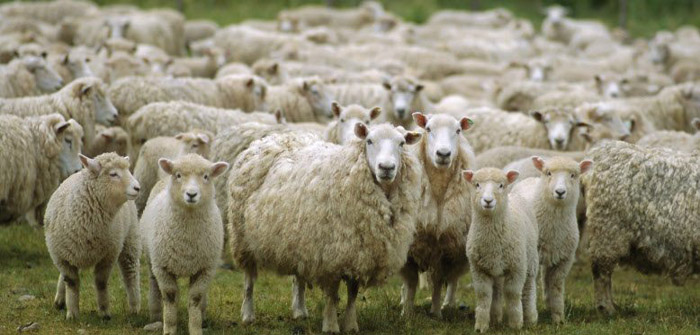The very wet spring and mild winter will have an impact on where and when we see the usual spring parasite challenges. The volume of water, and the number of wet days in February mean that if not flooded, the ground has been waterlogged with no breaks to dry out at all.
The mild winter, one to two degrees above average and reaching above 100C in parts of the south will allow some parasite development to start in the environment.
So, the Elanco vet team is asking, what does this mean for the usual spring parasite challenges?
Coccidiosis
Any delay to turn out will put calves and lambs at increased risk of coccidiosis. Limited housing space means that as stock numbers increase, levels of hygiene inevitably fall, and the longer animals stay in, the greater the risk of multiplying cocci numbers up to dangerous levels. However, turning out onto wet ground can be just as risky, as weather stress and contamination can also lead to high levels of challenge outdoors.
Being aware of the risk and being prepared to target at risk animals (lambs and calves) before disease strikes, is the best way to manage this challenge.
Worms
Nematodirus is the main challenge for lambs in the spring, and the mild winter means it is already active with a confirmed case in Cheshire at the start of March. Keeping an eye on the SCOPS Nematodirus forecast (https://www.scops.org.uk/forecasts/nematodirus-forecast/) will give warning of when action is needed.
Following up with worm egg counts will also let you know when other worms become active on your farm.
Liver fluke
The liver fluke challenge varied across the country this winter but overall was lower than expected. This was good but meant that some animals went untreated as there were no obvious signs of fluke. These groups are likely to be carrying adult fluke into the spring which will provide eggs to produce next season’s fluke.
Testing for fluke eggs before turning cattle out, and in ewes around lambing time, will allow a targeted treatment for adult fluke where needed. We’ll still have to watch the weather over the coming months, and see where the floodwaters leave suitable snail habitats, to predict where and when the fluke challenge will come this autumn.
Blowfly
Lucilia sericata, the main blowfly in the UK, starts to become active when soil temperatures reach nine dregrees. From the temperature chart for February, we can see that large parts of the country have been hitting eight to 10 degrees already, especially in the south. If the mild conditions are maintained through March, then southern counties will be in for an early blowfly challenge.
Correct application of an Insect Growth Regulator (IGR) product BEFORE strike happens, is still the ‘gold standard’ in blowfly prevention.


